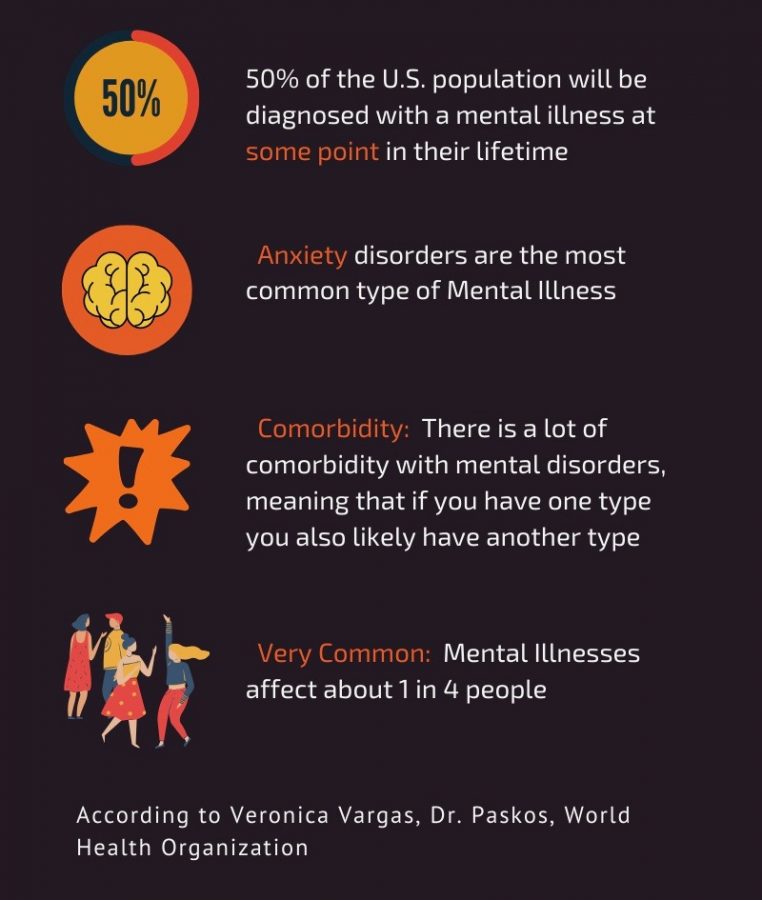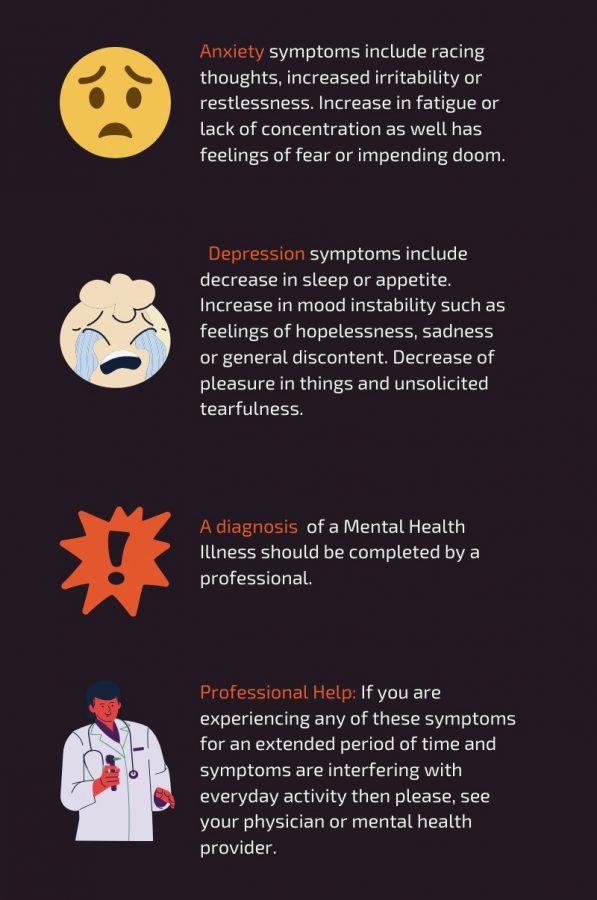Taking care of mental health during COVID-19: Ways to cope
Mental illnesses are more common than most people think, as seen in the infographic. The Health and Counseling Center is one of the many places where St. Edward’s students can receive treatment.
COVID-19 has brought about a pandemic no one today has ever experienced since 1918; the 1918 influenza pandemic was the most severe pandemic in recent history, according to the Central for Disease Control and Prevention. But besides the pandemic’s danger to our well being, it can impact our mental health as well. So how do we take care of it?
Many mental illnesses like anxiety and depression arise due to stressful situations and have to do in part with the brain and how it responds to trauma.
“A pandemic is a traumatic event, and people respond very differently to trauma based on a combination of nature and nurture,” St. Edward’s psychology professor Delia Paskos says.
The pandemic has affected many aspects of our lives, from changing our daily habits and activities to possible financial or food insecurity. Its impact is different among every individual, but collectively, we may experience stress and worry due to the uncertainty.
“The consequences of the pandemic, like quarantine and isolation, can also cause emotional and physical stress that can be chronic and long term, even in people who have never experienced mental illness before,” Paskos says.
How common is mental illness? In a word: very.
“The lifetime prevalence of mental disorders is different depending on the specific type of mental disorder, but for the lifetime prevalence for any type of mental disorder, it is about 50%,” Paskos says.
As for symptoms, there’s no one set of normal symptoms.
“The symptoms vary depending on what mental illness you have,” Paskos says.
Mental illness can feel scary. Apart from the symptoms, not knowing what to do or how to make it go away can make it feel even more overwhelming, especially if you have never experienced it before.
“It’s important to understand the things we can and cannot control as this gives us perspective and enables us to focus on productive activities,” Paskos says.
While we have no control over the pandemic, we do have control over how we react to it. Focusing our attention on productive activities rather than constantly worrying, which only depletes our mental wellbeing, is the better route to take.








